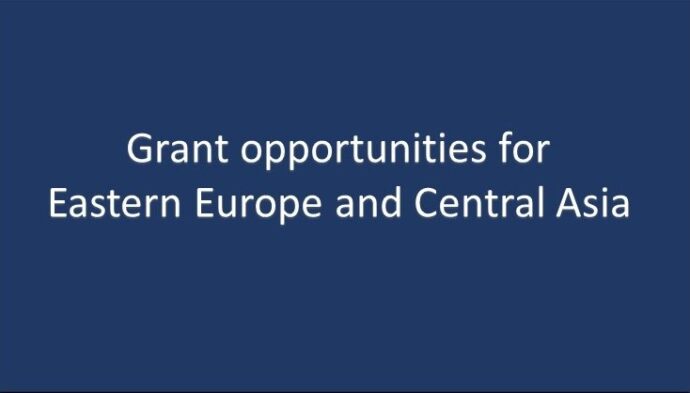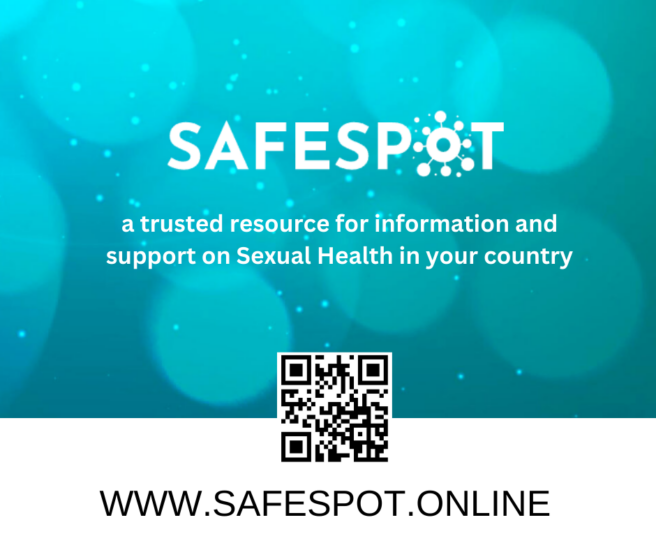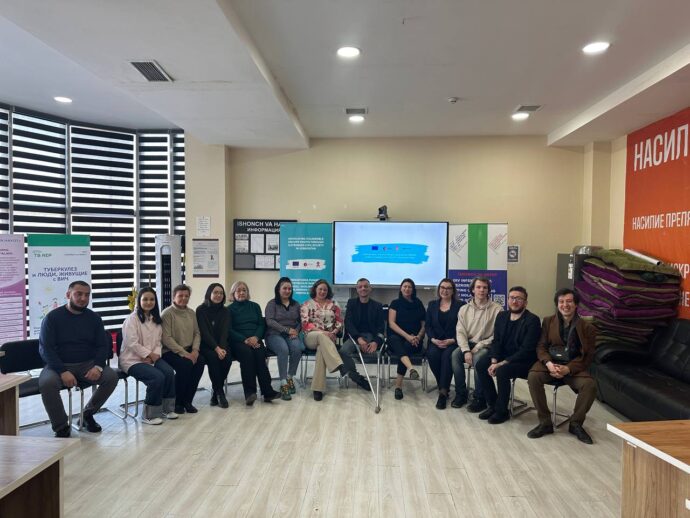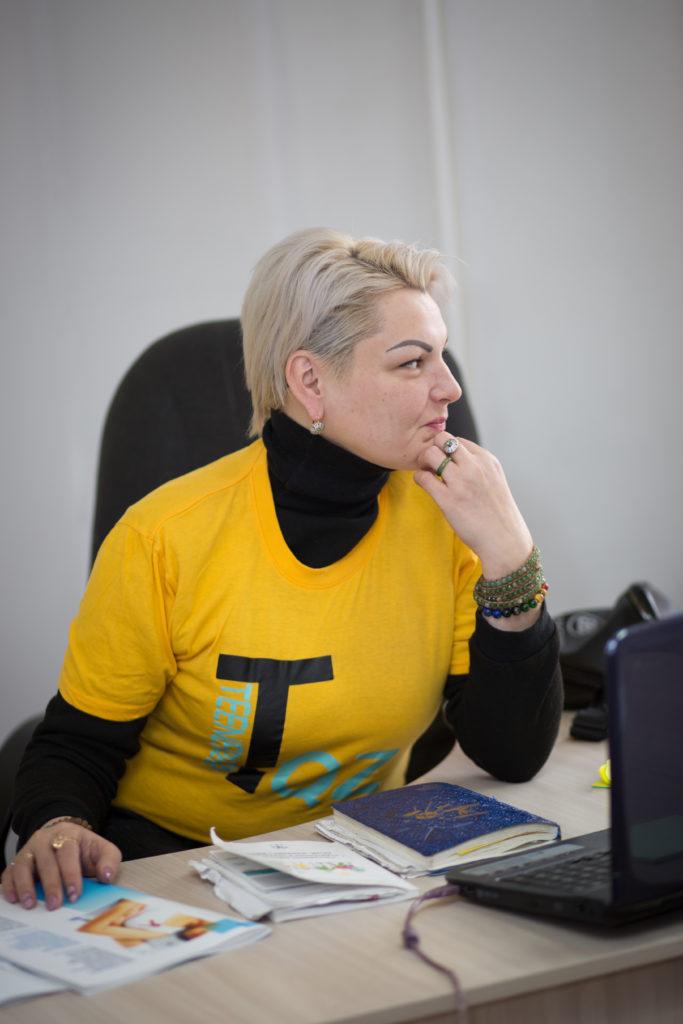 “I thought I’m the only one on this planet, a special child with HIV who takes pills, but it turned out there are many of us. Now I have a lot of friends, with whom I can openly talk about HIV…” This extract from a story of the project “Mobilization of Adolescents and Young People Living with HIV through Implementing the TEENERGIZER Model in Kazakhstan” was cited by Lyudmila Polyakova, Project Coordinator and Executive Director of Peer-to-Peer Plus NGO.
“I thought I’m the only one on this planet, a special child with HIV who takes pills, but it turned out there are many of us. Now I have a lot of friends, with whom I can openly talk about HIV…” This extract from a story of the project “Mobilization of Adolescents and Young People Living with HIV through Implementing the TEENERGIZER Model in Kazakhstan” was cited by Lyudmila Polyakova, Project Coordinator and Executive Director of Peer-to-Peer Plus NGO.
She applied to the Emergency Support Fund for Key Populations in EECA to get financial support for this project and was able to bring together dozens of youngsters with HIV in Kazakhstan!
Lyudmila, what are the special considerations one needs to take into account when working with adolescents living with HIV?
When working with an adolescent living with HIV, it is important to understand how the teenager sees his diagnosis, what he feels about it and if he needs help. He should be explained that it is critical to take the therapy and shown with a personal example that HIV status does not affect the quality of life, teenagers’ self-esteem and the achievement of their goals. It is vital to form a life-affirming scenario and support such adolescents in shaping their personalities. However, the most important thing is to create a team of 2-4 adequately informed adolescents, who will be sharing their experience and providing peer-to-peer consultations to other, less informed young boys and girls.
How did you realize it was necessary to start the project “Mobilization of Adolescents and Young People Living with HIV through Implementing the TEENERGIZER Model in Kazakhstan”?
We often organized various events for teenagers within the projects of our Peer-to-Peer Plus NGO. Sometimes they met each other but were not really close. In spring 2019, the Spring Leadership School was organized, bringing together 80 teenagers from all over Kazakhstan. We invited Danya and Lera, leaders of the Ukraine-based project TEENERGIZER, to be trainers at our school. The participants became real friends, they wanted to continue spending time together and hanging out. They wanted to have TEENERGIZER in their country! That’s where the idea to mobilize teenagers came from. However, back then we had nothing apart from the willingness to improve the lives of our adolescents and show them that dreams come true. We had some ideas on how to develop the teens community, but they could not be implemented without financial support, so I decided to apply to the Emergency Support Fund for Key Populations in EECA. Our love and commitment to our cause brought us positive results!
How did this grant help you?
Thanks to the funding received from the Emergency Support Fund, we were able to ensure sustainability to the TEENERGIZER movement. We are greatly thankful to AFEW International and the Elton John AIDS Foundation for their support.
At the same time, we received significant technical support – Baurzhan Bayserkin, Director of the Kazakh Scientific Centre of Dermatology and Infectious Diseases, gave us a great office in the centre of the city. Mentorship offered by TEENERGIZER allowed us to bring together 34 adolescents living with HIV and engage with 17 adolescents vulnerable to HIV. We started a messenger chat, where teenagers share information. They also have meetings in our youth centre. We covered over 190 young people and, importantly, 50 teachers of educational facilities with our workshops to prevent HIV and form tolerance to PLWH among students.
How did the young people change?
The changes are unbelievable! Now they have a much higher self-esteem, an experience of public speaking and more confidence when speaking in front of cameras. This project helped us to unite them, form a team and facilitate their growth. When they are together and do something, you can see how they complement one another.
No one can stop young people now! When implementing the project, we allowed teenagers to offer the topics and ideas they were interested in. When they became closer, they were able to build trust and team spirit. It turned out that, apart from HIV, they are interested in many other topics, such as domestic violence, bullying at school, career guidance, prevention of risky behaviours among adolescents and many other things. With their youthful exuberance, they organized theatrical performances against violence, wearing face paint and white clothes, with musical background, at several venues of our city. Besides, they went to Arbat on December 1, 2019, wearing white coats with red ribbons on their chests, asking people questions about HIV, giving them awareness-raising brochures and telling about the routes of transmission and prevention measures.
What do you remember most from your work with young people?
In fact, I have many interesting stories to tell about how we trained our teenagers in street orientation skills, how they organized their first workshop, but the story of one boy raised by his grandmother really thrilled me. We had a new off-site Winter School with some new boys and girls. They all knew about their HIV status, at least from their parents and doctors of the AIDS Centre. During our class, the teenagers were asked if they took ARVs, at what time and how many times a day. So everybody started telling what pills they take and at what time. This boy was so surprised, that it touched me to the heart: “I thought I’m the only one on this planet, a special child with HIV who takes pills, but it turned out there are many of us. Now I have a lot of friends, with whom I can openly talk about HIV. Let’s meet more often.”
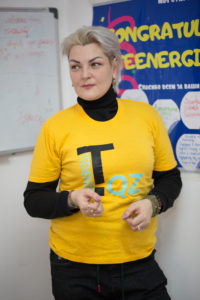 What does the society think about your work?
What does the society think about your work?
It depends. Older people still have this stereotype in their heads that HIV is the twentieth century plague. As for the young people, they know almost nothing about the disease and its ways of transmission. There are no events organized for youth, if not to count one dull 40-minute lesson. All the knowledge just flies away as soon as the lesson is over. For many years, it was considered a shame to talk about HIV/STI prevention and sex education in our country. Besides, it was seen as a propaganda of sex and risky behaviours. In the recent years, the situation has slightly improved, but even now, when we prepare our proposals, we are asked not to use the word “HIV”, but to wrap it up in some nice packaging.
The project is supported by the Elton John AIDS Foundation and Aidsfonds.


